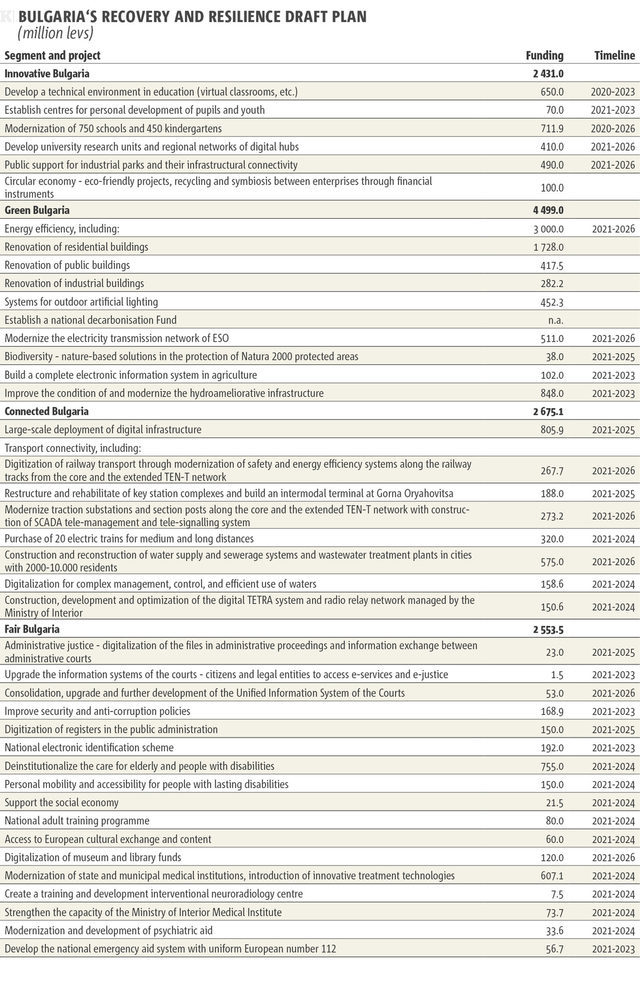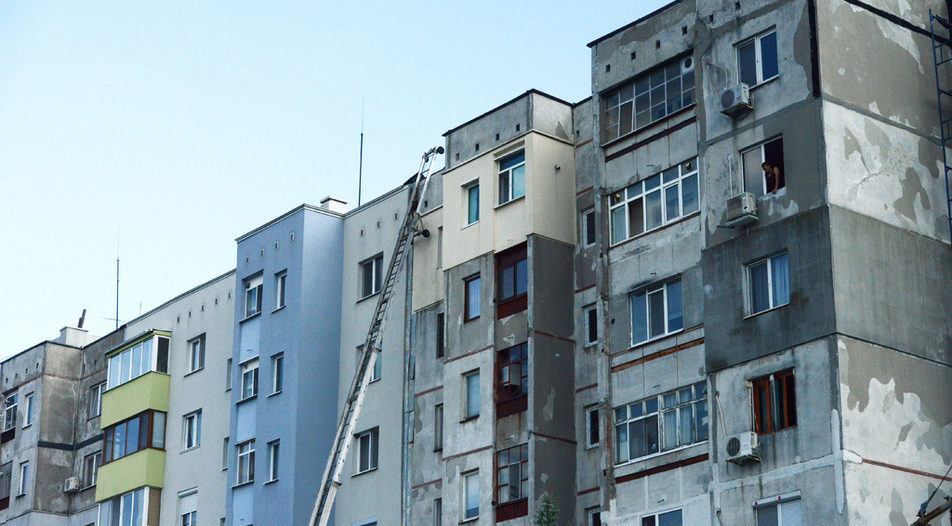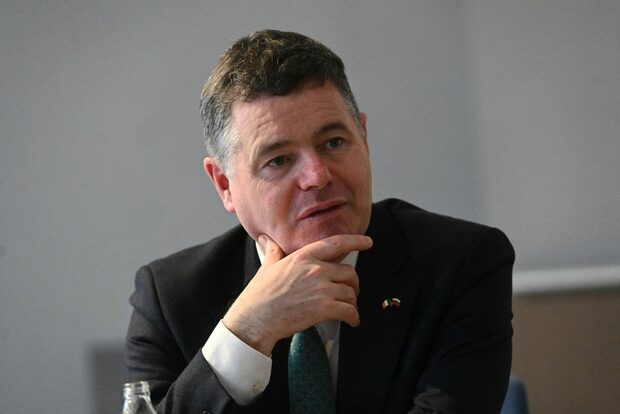- Bulgaria's proposals for funding under the recovery plan predominantly include old, underfinanced projects.
- The main points - housing rehabilitation, irrigation and telecommunications networks, can hardly drive future growth.
- The government's strategy lacks specific goals for reforming the economy and national development.
In December of 2020, the EU adopted its long-term budget framework for 2021-2027 in the amount of 1.074 trillion euro and the 750 billion euro package known as NextGenerationEU - a temporary fund attached to the budget and designed to boost Europe's recovery from the coronavirus crisis. Together, they represent the largest stimulus package ever financed through the EU budget, of 1.8 trillion euro.
Bulgaria and all other member states will have six years to spend the funds from the package. The Bulgarian government is set to receive 12 billion levs or a little over 6.1 billion euro from Europe's plan - a significant funding compared to the meagre public investment of up to 1-1.5 billion euro per year in the EU's poorest member state. The extra funds can bring about meaningful changes and spur the development of Bulgaria in the coming years if used for the right purposes.
Unfortunately, so far, the national strategy for economic recovery brings little hope of that coming to pass. The main points of discussion sound good enough - housing rehabilitation, irrigation, infrastructure, improving telecommunications networks, ecology, education, and energy. However, from a different perspective, one can see that half of the 12 billion levs will go to some sort of construction projects, whereas a quarter will be financing digital or technological innovation. On the latter point, it should be borne in mind that 800 million levs of that sum will directly fund telecoms' expenditure on equipment. A further 400 million levs of the 'recovery' plan is set to be spent on yet another round of funding for Bulgaria's e-government - an initiative meant to digitize public services that is already spanning years and hundreds of millions of levs in taxpayer money with little to no effect.
In other words, while other countries are going to be busy creating the future, Bulgaria will continue to stumble on past shortcomings. On the one hand, it is understandable that a country with many structural challenges would want to invest heavily in fixing them. On the other hand, nothing suggests that this time it would be different. Moreover, Bulgaria could lose an opportunity to fund initiatives capable of completely changing the local economy.
Where's the money going
Bulgaria's recovery plan was unveiled in early November by deputy prime minister Tomislav Donchev with little in the way of revolutionary ideas. "What do you want to see inside, spaceports?", said Donchev as he explained how the projects were chosen. The process is relatively simple - a government ministry collects a bunch of ideas and chooses the ones that are feasible. With this approach, it is not surprising that many of the points are in fact outdated projects for which there was no funding or which should have happened but were left out for various reasons.
At first glance, the plan fits well within the general EU frame of priorities. The document is divided into four segments - Innovative, Green, Connected, and Just Bulgaria. However, most of the funds are set to go to initiatives which have little to do with the fancy titles of the segments. One of the projects envisages the return of the Energy Efficiency of Multi-Family Residential Buildings National Programme an initiative which provides public funding for the implementation of measures for improving the energy efficiency of housing. Others include funding for development of several digital services and irrigation systems.

Forward or backwards
Experts unanimously agree that the presented framework is not a strategy for development but rather a piecemeal work.
"То us, this is not a comprehensive plan for the development of the country. It doesn't show the full picture but only part of it, as the government plans to finance only individual projects in certain sectors of the economy", said the Secretary-General of the Bulgarian Chamber of Commerce and Industry (BCCI) Vasil Todorov. For example, there are no measures related to technological modernization and increased production capacity of local enterprises - something that could make companies more competitive.
Economist and founder of Sofia-based Institute for Market Economics (IME) Krasen Stanchev believes that this is a "rather ill-thought-out plan at first glance. What's missing are ideas that would be not only beneficial to Bulgaria but also effective long-term". Economist Latchezar Bogdanov sums it up: "The plan must follow the answers to the questions "Why is Bulgaria the poorest country?" and "What structural challenges inhibit growth?", which it does not do at the moment.
However, Donchev's working group warns experts not to be so quick to judge.
"Those who have read only the introductory 60 pages of the plan are missing a few details because they haven't seen the accompanying operational programmes and the Plan for a Just Transition," said the deputy prime minister. According to him, the 12 billion levs are supplementary funding to the EU funds the country will receive, in addition to 3 million levs under the mechanism for a just transition in the energy sector.
The problem is that, no matter how much money the government pours into priorities, the results are lacklustre at best. In construction, for example, despite the billions of levs in public funding, the billions from EU funds and decades of constant repair, Bulgaria still lags far behind its peers in terms of road and railway quality, there are few water treatment plants. In other sectors, science research has very low productivity and no communication with local businesses, and the economic and social divides among Bulgaria's regions are deepening.
What the country wants
The plan was open to public discussion for two months and within that timeframe it drew 45 official statements from close to 100 local organizations, citizens and even public institutions like the Presidency. There are at least 45 more sent directly to the deputy prime minister's office. The statements suggest many changes to the initial plan and even put forward alternative projects.
The fact that so many statements arrived in such a short period of time shows the huge potential for new ideas brought to the fore by the recovery fund. Granted, spaceports are unlikely to make it into the discussion, but a country which doesn't even have normal toilets in public schools in the 21st century has other priorities.
The most vocal in presenting their alternatives were people from the president's office. At a special event, President Rumen Radev unveiled five projects supported by various organizations that focus on the energy sector, healthcare and education. For example, one idea is the development of a network of genetic laboratories to support both disease prevention (a major weakness in Bulgarian healthcare) and the development of a cluster for bio- and genetic technologies. "We are talking not only about government infrastructure but about coordination between private businesses, hospitals and universities, with which to bring Bulgarian healthcare into the modern era," said Kiril Petkov, one of the authors of the idea.
Another interesting initiative is the study of Bulgaria's geothermal resources and the construction of two pilot geothermal power plants. Yet another comes very close to spaceports: the establishment of a National Center for Monitoring and Control, which would monitor the country's territory and weather conditions from space in order to provide timely information about resource scarcity, natural disasters and the state of the environment.
Many organizations have their own suggestions for smaller projects like exploring opportunities to implement hydrogen energy technologies, restoration of historical buildings which represent cultural monuments to renew the appearance of a number of neighborhoods in the country, and proposals for the government to buy plots of land in areas where private interests for construction threaten the environment.
The problem is that too many of the proposals are not about money, but about processes and larger-scale structural changes in the way the country is governed. The proposals affect everything from the way priorities are formulated, to the distribution of public funds, to things like urban planning. The dozens of ideas submitted by the country's intellectual elite to its government actually show more than just demand for funding. There is a desire to talk about our common future and the way we'll build it. The fact that this debate took place within a few weeks on a website shows how much it is missing elsewhere.
What will Brussels say
Tomislav Donchev has promised that any good idea that has value and has not been thought of can be included in the plan. However, anyone with a suggestion will face an obstacle: ministries will discuss and pick the ideas, which will lead to a conflict of interests relating to their own projects. Also, taking into account that the methods for distributing funds have been perfected over the past decade, and the administration's desire for predictable and easy-to-implement projects, it's difficult to imagine that, in the end, the plan will have changed much.
The only institution which has a serious chance of insisting on changes is the European Commission. After all, the funds are part of an instrument Brussels has launched to restore the union after the coronavirus. The reason the EU is willing to raise the money is that the funds are intended not only to finance the economic and social recovery but also to achieve the goals set in the Green Deal by 2030. In other words, the plan must show not only where Bulgaria wants to invest, but why as well. At the same time, it needs to have clear indicators for progress along the way.
And here lies the main difference between the operational programmes and the Recovery Fund in which all projects need to be completed by 2026 in order to receive funding from the Commission and cannot be replaced, changed, phased out, etc. Moreover, payments follow a specific pattern - achieving mid-term goals and steps in reform efforts. "If target values are not reached, there are no payments. Not only for the given project but also for the whole tool," said people from Donchev's working group. Which would make the administration even more risk-averse and inclined to bet on familiar and predictable projects.
Several important issues
Experts argue that the scale of the recovery fund has the capacity to bring about big changes to the Bulgarian economy. For example, commitments to the EU Green Deal are almost non-existent - no hint on development of hydrogen technology or energy storage, and renewable energy is barely mentioned. Bulgaria's main social issue - the lack of integration of the local Roma minority, is almost non-existent in the plan. Retirees' living standards will be addressed with new buildings rather than through a reform in the pension system.
This neglect of structural issues stems from the fact that, as with operational programmes, the sole investor will be the state - the government will decide where, how much and how to spend European funds. Which, according to IME's Krasen Stanchev, crowds out other investments in the economy.
Economist Latchezar Bogdanov believes that the EU will send Bulgaria back to the drawing board because of the many shortcomings the country's plan currently has. However, economist Zsolt Darvas of Brussels-based think-tank Bruegel is not so sure about that. "The plan seems to fit all the areas set by the European Commission. Renovation is a good idea given the condition of the buildings and their energy consumption. You can't avoid rushing projects that need funding, given that it's a lot of money for countries such as Bulgaria and Hungary."
A quick look at what other countries are planning shows that the situation is not much better. Darvas says the Hungarian government will fund up to 50% of family house renovations if the family has children. According to Czech journalist Katerina Safarikova, the Czech plan is made up of various demands from ministries and regions, and a Czech businessman called it a "banquet for the hungry." Italy will spend money on 5G networks and will invest heavily in rail transport.
In short, it is still uncertain what the final version of Bulgaria's recovery plan will look like. However, it's pretty sure that the general framework will meet the approval of Europe because, after 14 years in the EU, Bulgaria's administration knows very well how to propose projects that sound good. "It's not enough just to take the money but also to spend it well. It is more important how the funds are invested rather than how they are distributed. But there is very little that the Commission can do here," said Darvas.
- Bulgaria's proposals for funding under the recovery plan predominantly include old, underfinanced projects.
- The main points - housing rehabilitation, irrigation and telecommunications networks, can hardly drive future growth.
- The government's strategy lacks specific goals for reforming the economy and national development.
In December of 2020, the EU adopted its long-term budget framework for 2021-2027 in the amount of 1.074 trillion euro and the 750 billion euro package known as NextGenerationEU - a temporary fund attached to the budget and designed to boost Europe's recovery from the coronavirus crisis. Together, they represent the largest stimulus package ever financed through the EU budget, of 1.8 trillion euro.












